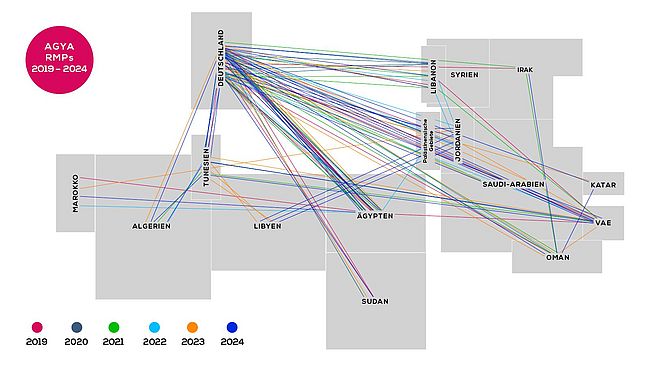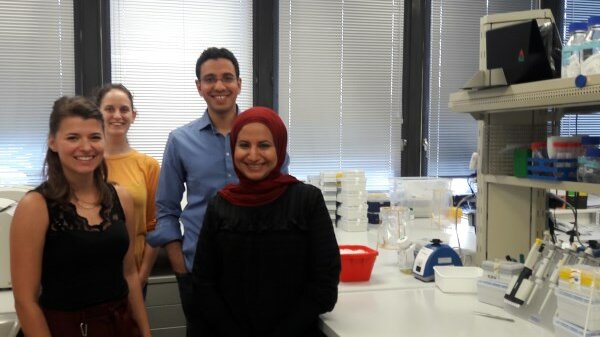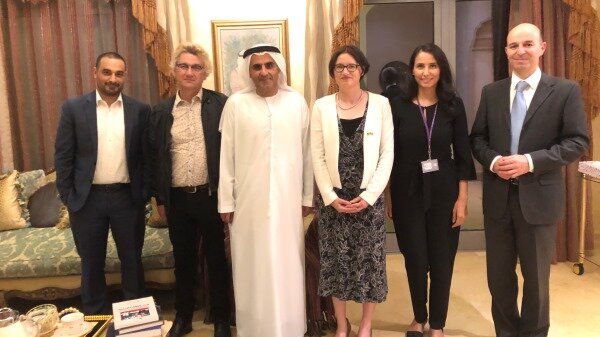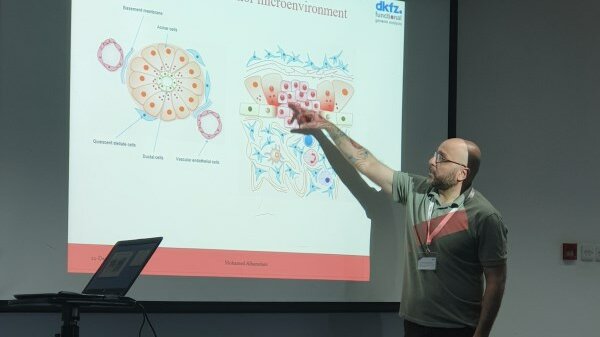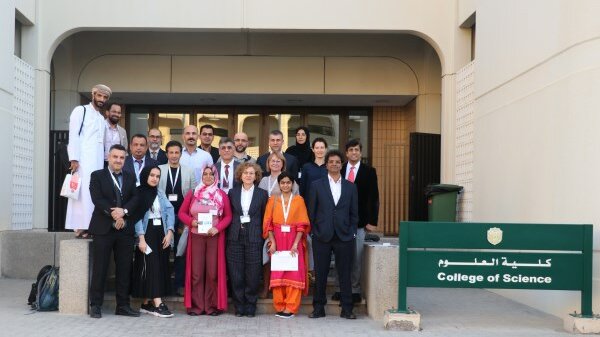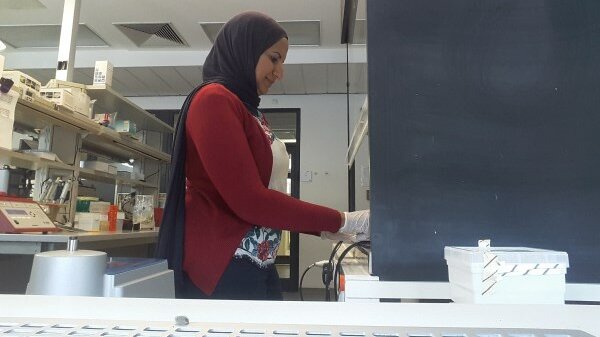Ideas Know No Borders: AGYA Supports its Members’ Research Mobility with New Grant Scheme
Ideas Know No Borders: AGYA Supports its Members’ Research Mobility with New Grant Scheme
AGYA seeks to empower its members to become well-rounded leaders at the crossroads of science and society. To this end, it offers its members diverse capacity building opportunities. These include tailor-made trainings to boost members’ intercultural knowledge, leadership and communication skills, as well as creative event formats in which members can interact and explore ideas. Another important way in which AGYA builds capacity among its members is through support for research mobility.
Mobility is Key for Building Networks and Fostering Sustainable North-South-South Cooperation
Mobility allows researchers to gain and share knowledge, skills and resources. It also allows them to establish and expand their professional networks. In today’s globalized world, developing innovative solutions to common challenges increasingly requires collaboration and cooperation across borders. Accordingly, AGYA seeks to connect scholars, institutions and key societal stakeholders that might not otherwise interact. Thanks to technology today, researchers and institutions can often engage with each other remotely. However, AGYA believes there is no substitute for in-person interaction in terms of sparking connections, establishing trust, forging partnerships and fostering innovation. By funding one to three-month interdisciplinary research stays in Arab and German universities and research institutions, AGYA’s RMP supports its members’ international mobility, strengthening their professional networks and sharpening their interdisciplinary research profiles. In a test phase, AGYA’s Research Mobility Program (RMP) has already proven to be a resounding success. Nineteen beneficiaries of RMP grants carried out research stays during 2019 at 18 institutions in five countries: Egypt, Germany, Lebanon, Oman and the United Arab Emirates. As demonstrated in the examples below, both members and alumni/alumnae have reported significant benefits from their RMP experiences. The positive results encouraged AGYA to establish RMP as a new grant scheme.
Exploring Novel Applications of Nanoparticles in Treating Terminal Illnesses
AGYA member Maha Nasr, Associate Professor in the Faculty of Pharmacy at Ain Shams University (Egypt), used a 2019 RMP grant for two one-month research stays in Germany to advance her cutting-edge interdisciplinary research linking pharmacology, biotechnology, immunology and oncology. Her work focuses on the potential uses of advanced technologies like nanoparticle-based drug carriers and composite delivery systems for the treatment of diseases such as cancer and Alzheimer's. During her stay at Saarland University, she explored the novel application of a special type of nanoparticles – exosomes – in vaccinations, while at Charité University in Berlin, she focused on the integration of nanoparticles in regenerative stem cell therapy targeting kidney cells. According to Maha, her ‘work at the intersection of nanotechnology, drug delivery and the treatment of diseases is highly interdisciplinary and growing rapidly. Research mobility is incredibly important for ensuring I stay up to date and engaged with the latest advancements’. In this regard, an RMP grant from AGYA ‘helped me take my research to the next level’, she says. It also allowed her to initiate joint project applications with her host institutions for more sustainable collaboration in these two lines of research between Egypt and Germany, including future opportunities for Egyptian PhD and postdoctoral researchers. In addition, her RMP grant gave her several valuable opportunities to present her research findings to diverse audiences in Germany and Europe.
Analysing Original Manuscripts to Create a New, Revised Edition of an Arabic Literary Classic
AGYA alumnus Bilal Orfali, Associate Professor of Arabic Studies at the American University of Beirut (Lebanon), used a 2019 RMP grant for a one-month research stay at NYU Abu Dhabi (United Arab Emirates). There he advanced his current research of the Maqāmāt of Hamadhānī, one of the most important works of classical Arabic literature. In response to serious flaws in the standard 19th century edition of the Maqāmāt, Orfali plans to create a critically revised edition to serve as the new standard version for Arabic readers and a basis for English translation. Because Abu Dhabi is home to many of the original manuscript collections, Orfali’s RMP grant enabled him to access, examine and obtain copies crucial for his project. He was also able to work with his co-author Maurice Pomerantz to finalize a chapter in their forthcoming book, collect data for an academic article and conduct research for a lecture delivered in Berlin in July 2019 as part of a joint AGYA project on Arab-German storytelling traditions. He expanded his network at a high-profile discussion panel and iftar organized by Abu Dhabi Media, and contributed to a documentary on initiatives in Arabic Studies. Orfali’s use of the RMP for collaborative research between Lebanon and the UAE demonstrates its exciting promise for expanding vital South-South cooperation. ‘While many funding schemes promote North-South research cooperation’, says Orfali, ‘similar opportunities for North-South-South cooperation are rare. AGYA really stands out by providing research mobility grants for interdisciplinary projects between peers and institutions in the Arab word’.
Discovering the Health-Promoting Properties of Dates and their Application for Industry
AGYA alumnus Younis Baqi, Assistant Professor in the Department of Chemistry at Sultan Qaboos University (Oman), studies the nutritional and therapeutic properties of dates, linking traditional and regenerative medicine at the crossroads of chemistry and health sciences. Thanks to an AGYA RMP grant in 2019, he spent a three-month stay at the University of Bonn and the German Cancer Research Center (DKFZ) in Heidelberg. There he was able to perform key experiments on specialist equipment and establish structured Omani-German research collaboration between his home and host institutions. He also drafted several research publications and shared some of his preliminary results on the potential pharmaceutical use of natural compounds from dates in the field of regenerative medicine and cancer research. Demonstrating the mutual benefit of RMP research stays for both German and Arab partners, three scientists from Germany were nominated to visit the labs at Sultan Qaboos University in Oman. During their three-day visit in December 2019, the three researchers from Germany exchanged knowledge with experts from Oman, Iraq, Sudan, Tunisia and the United Arab Emirates, including postgraduate students and research assistants in a dynamic workshop bridging theory and practical experimentation, as well as public audiences in a series of guest lectures.
Finding Natural Solutions to Prevent Crop Diseases and Reduce Reliance on Harmful Pesticides
In addition to supporting research mobility for members and alumni/alumnae, AGYA’s RMP also reserves a certain quota of funds for refugee researchers and scholars at risk. With this approach AGYA strives to integrate scholars at risk into the scientific landscape of the host country. In 2019, Omran Youssef was one such scholar who benefitted from an RMP grant for a three-month research stay at the University of Hohenheim in Stuttgart, Germany. His interdisciplinary research at the intersection of chemistry, agriculture and health focuses on finding alternatives to pesticides for preventing two of the major diseases threatening global wheat crops—‘Yellow Rust’ and ‘Fusarium Head Blight’. Building on his previous research, Youssef used his RMP stay to conduct additional greenhouse and invitro experiments using various natural biocontrol agents, namely plant and fungi extracts, to inhibit the growth of dangerous pathogenic fungi responsible for the two wheat diseases. The RMP stay allowed him to further test and confirm his previous results, draft a scientific journal article for publication, and strengthen his international network through presenting his research results at several conferences.
As part of the Research Mobility Program, AGYA not only promotes the respective international research portfolio and the mobility of AGYA members and alumni/alumnae, their PhD students and scholars at risk, but also strengthens North-South-South cooperation and research collaboration across disciplines and borders.
